Introduction to the Impeachment Drama
The current political landscape in Kenya is tense as the drama surrounding the impeachment of Deputy President Rigathi Gachagua unfolds. A recent decision by a Kenyan court has declared that the proceedings against Gachagua can proceed within the Senate, setting the stage for a political showdown of significant proportions. This decision comes in the wake of the National Assembly's vote to impeach Gachagua based on eleven serious charges, including allegations of corruption, attempts to undermine governmental authority, and instigating ethnic divisions. Gachagua, a key ally-turned-critic of President William Ruto, has denied the allegations, labeling the impeachment process as a politically motivated attack intended to tarnish his reputation and dismantle his influence.
The Allegations and Denials
The range of accusations leveled against Deputy President Gachagua is not only extensive but also emblematic of the turbulent nature of Kenyan politics. The charges include misuse of public office for personal gain, an issue that has long tainted the political sector in Kenya, undermining public trust and faith in governance. Particularly sensitive in a country with Kenya's diverse ethnic composition are the charges of inciting ethnic animosity; in a country where past elections have ignited ethnic tensions, such implications can carry significant weight and consequences.
Gachagua’s comprehensive denial of these allegations forms a significant part of the public narrative. He has repeatedly dismissed the charges as baseless, describing them as fabrications designed to eliminate him politically. His counter-narrative is one of a smear campaign orchestrated by political adversaries, particularly those aligned with President Ruto. This narrative resonates with some of Gachagua's supporters, who view him as a victim of the often cutthroat political maneuverings in Kenyan politics.
The Legal and Political Process
The legal proceedings regarding Gachagua's impeachment are significant not only for their implications on his political career but also for Kenya’s constitutional praxis. The process requires a two-thirds majority vote in the Senate to oust Gachagua from office, a threshold that underscores the gravity of such an action. While the Senate has already begun its meetings, the discussions on the motion to impeach Gachagua were initially held behind closed doors, reflecting the sensitivity and high stakes involved.
Judge Eric Ogola's decision to allow the impeachment process to continue despite Gachagua’s legal appeal demonstrates the legal endorsement for parliamentary procedures in such a high-profile case. However, the court's decision is not the final word, with Gachagua continuing to pursue all available legal avenues to overturn or at least delay the impeachment efforts.
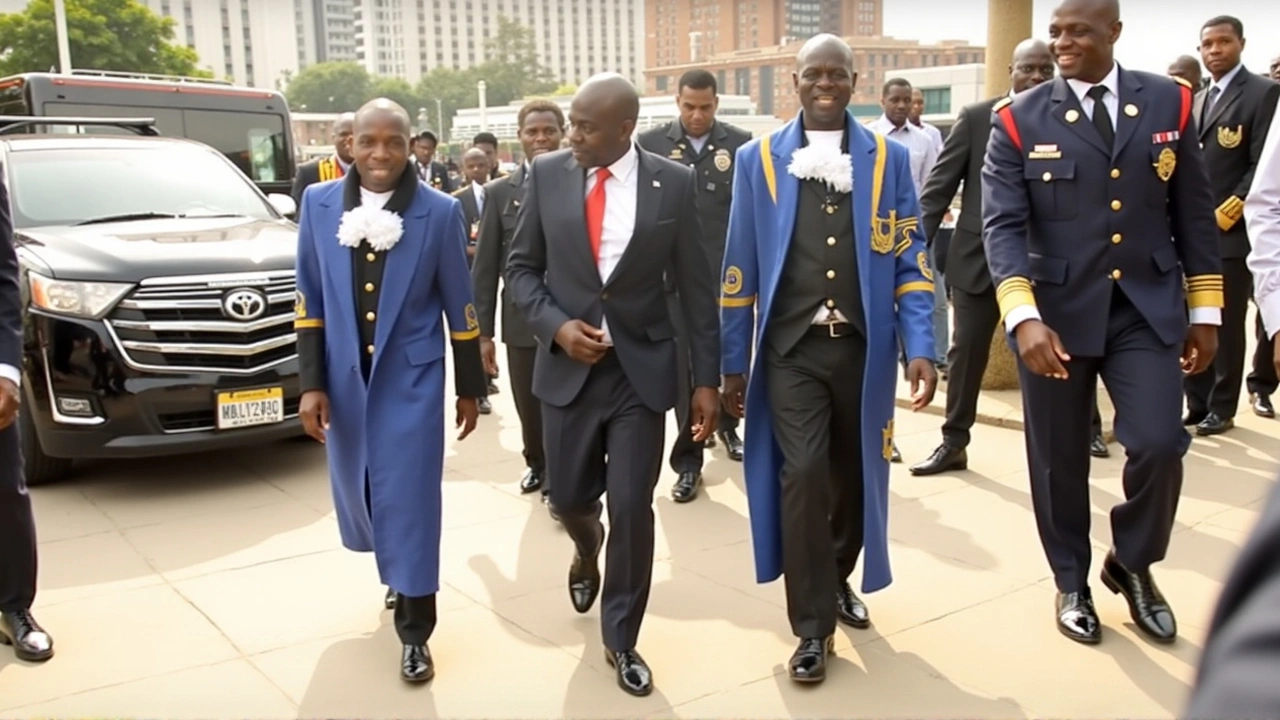
Potential Historical Significance
If successful, Gachagua's impeachment would mark an unprecedented moment in Kenyan history as he would be the first deputy president to be removed under the impeachment provisions of the 2010 constitution. The constitutional provisions were designed to foster accountability and ethical governance; nonetheless, the political dynamics at play raise concerns among observers about whether these processes reflect genuine governance challenges or merely political rivalry manifesting in judicial settings.
Background on Rigathi Gachagua
Gachagua's political journey and business acumen paint the picture of a man familiar with both influence and controversy. As a member of the Kikuyu, Kenya's largest ethnic group, his role in Kenya's politics has been shaped by the complex ethnic undertones that influence the country's electoral politics. Gachagua successfully overcame past allegations of corruption to rise as the deputy leader, pairing with President Ruto in a bid marked by intense electoral competition in August 2022. His ability to secure votes, particularly from the central Kenya area, was pivotal to Ruto's electoral success.
Yet, despite this prior unity, the political alliance between Gachagua and Ruto has increasingly soured. Reports of verbal clashes and strategic disagreements have surfaced, sparking shifts in political allegiances and alliances. Gachagua has publicly voiced feelings of exclusion and marginalization, stating that the president has sidelined him and ignored his political contributions.
Riot Allegations and Political Fallout
Amid the impeachment proceedings, Gachagua faces accusations related to inciting youth protests, which erupted violently against the government over tax hikes in June. The unrest tragically resulted in over fifty fatalities, further embedding the narrative of governmental dysfunction and deep-seated unrest in certain segments of society. In response to the turmoil, President Ruto took the controversial step of reshuffling his cabinet, appointing opposition figures to form what he termed a 'unity government,' ostensibly to quell the dissension but also perhaps as a strategic move to stabilize his government while subtly reinforcing his administration's narrative of inclusivity.
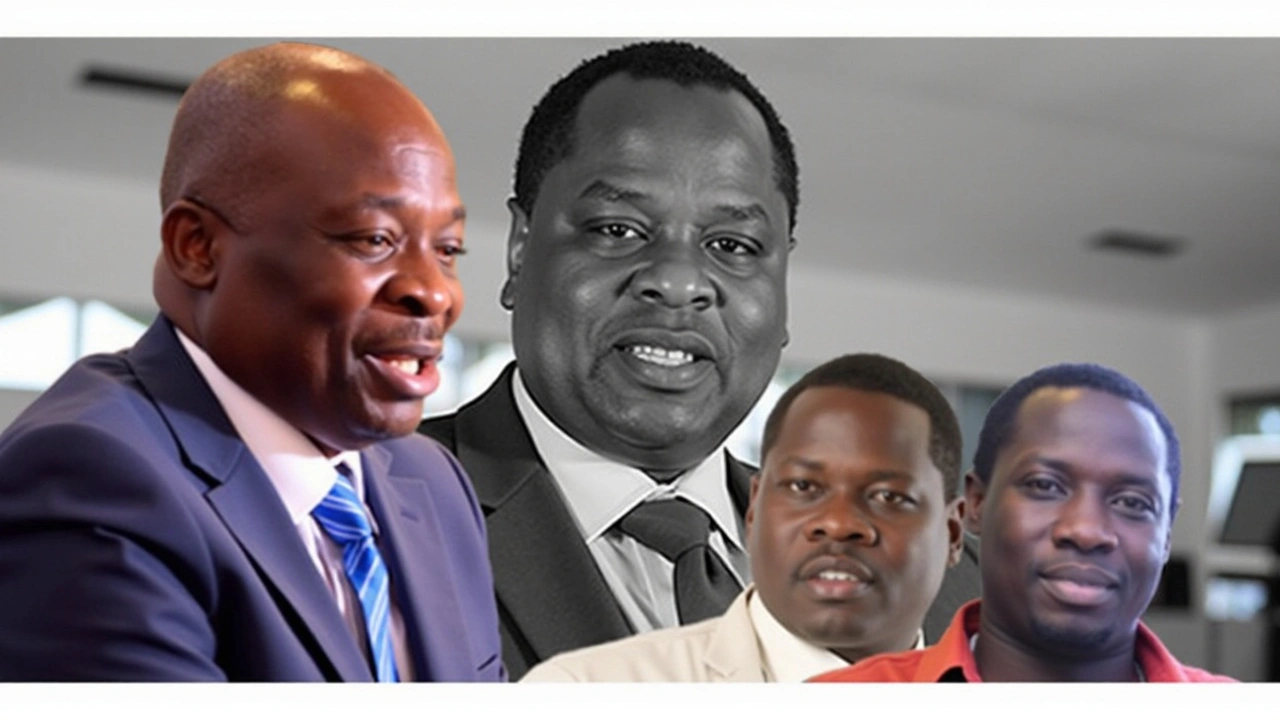
The Road Ahead
As the Senate deliberates on Gachagua's fate, the political climate in Kenya remains charged. Public sentiment varies, with some viewing the impeachment as a necessary measure of accountability, while others see it as a mechanization of political power struggles. The outcome of Gachagua's impeachment proceedings will not only shape the future of his political career but may also set a precedent for how high-level political accountability is handled in Kenya, providing a crucial test for the resilience of Kenya's democratic institutions. As the day's ruling looms closer, the nation watches closely, recognizing the potential for significant political and historical ramifications.

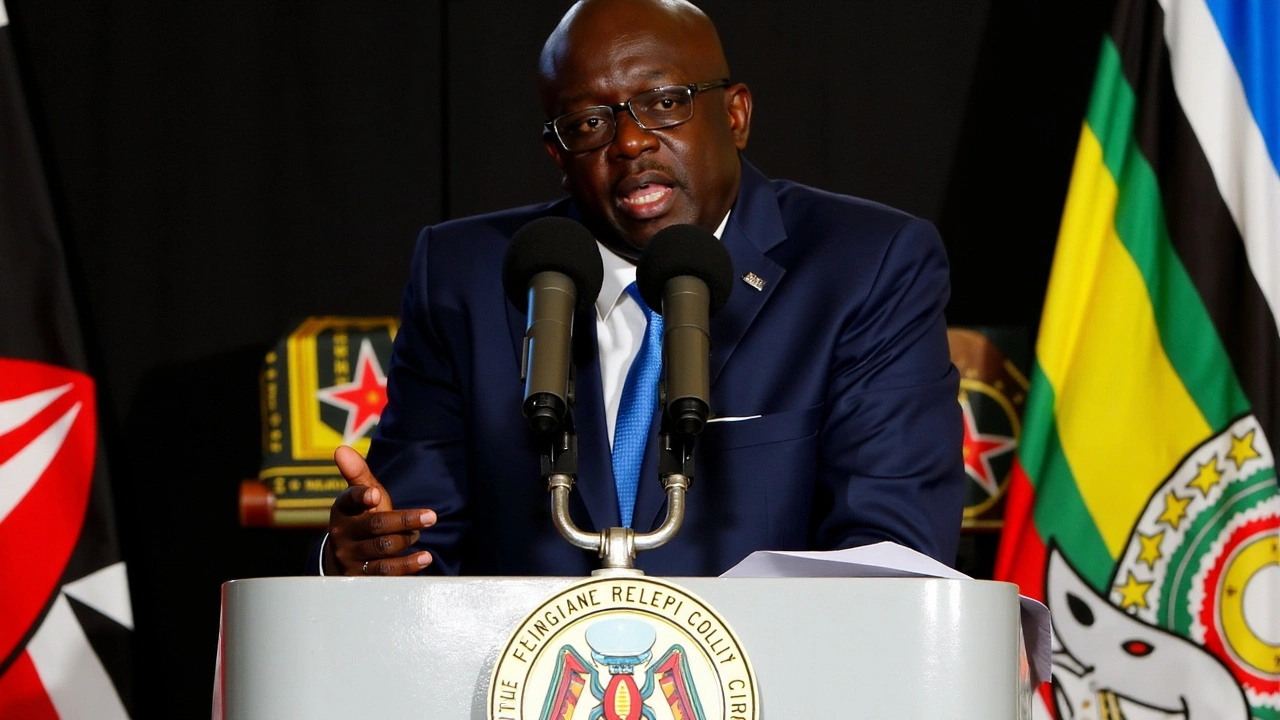
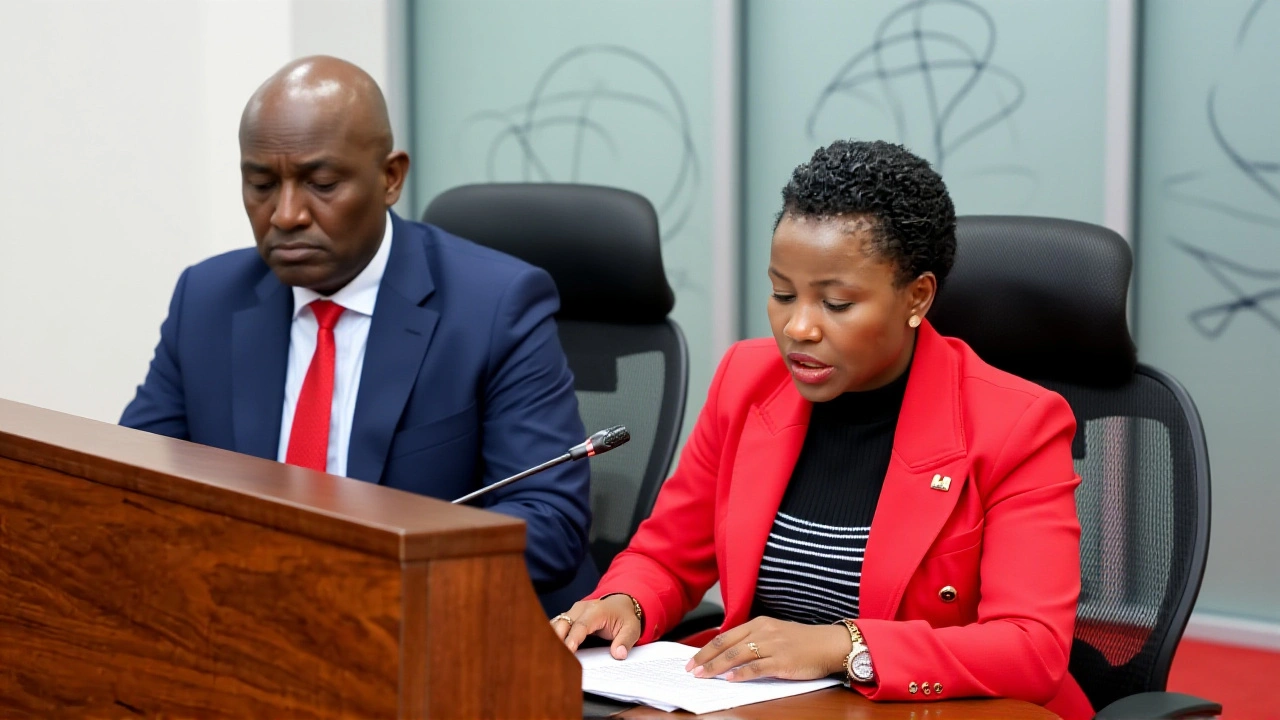
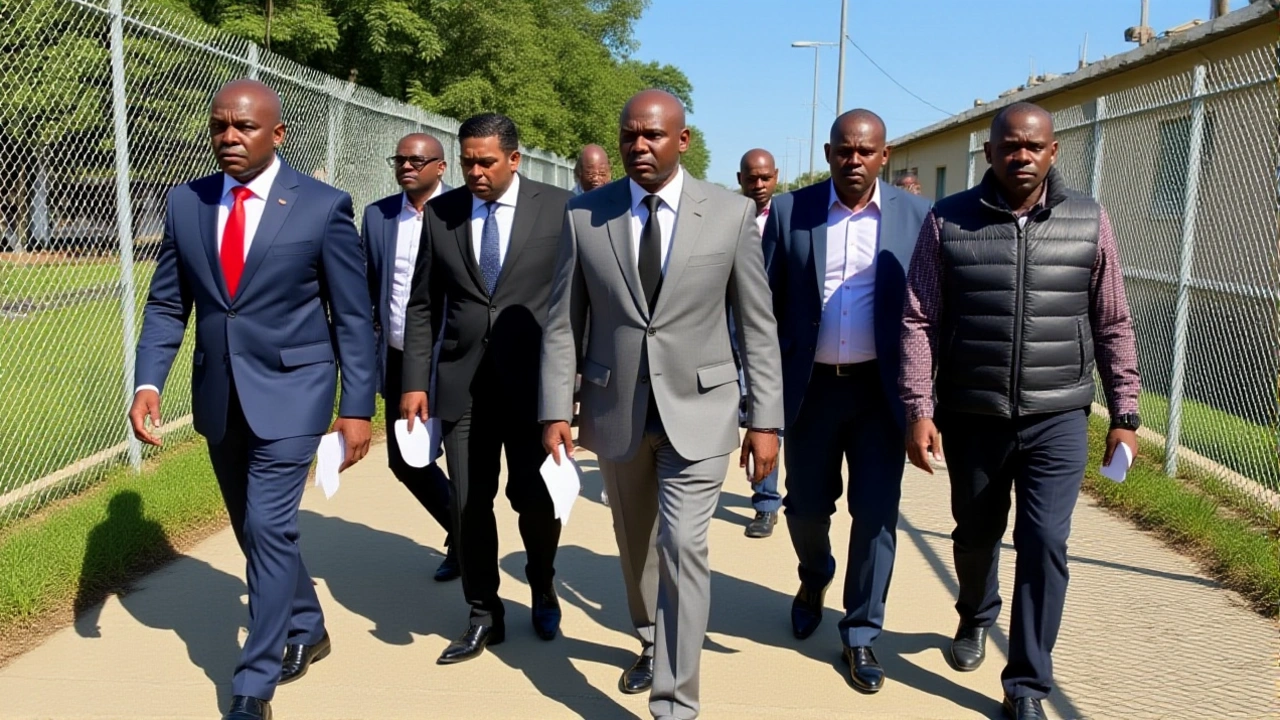

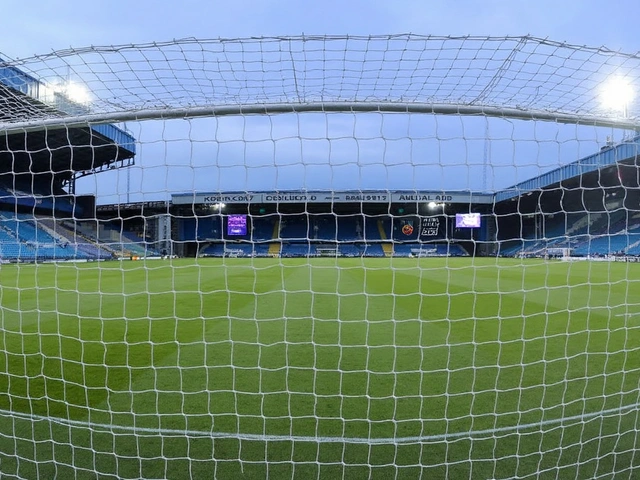
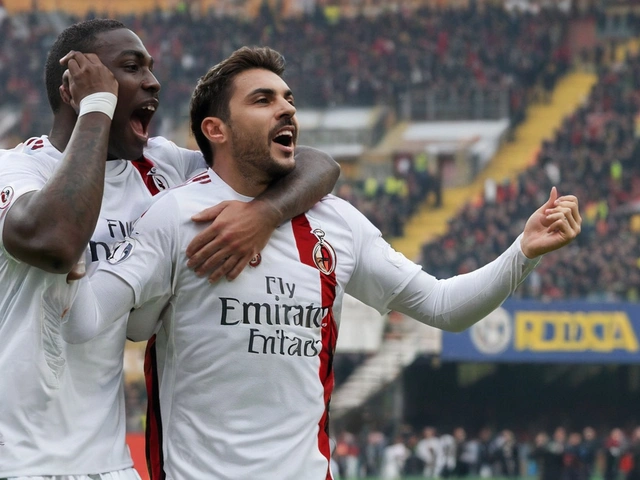

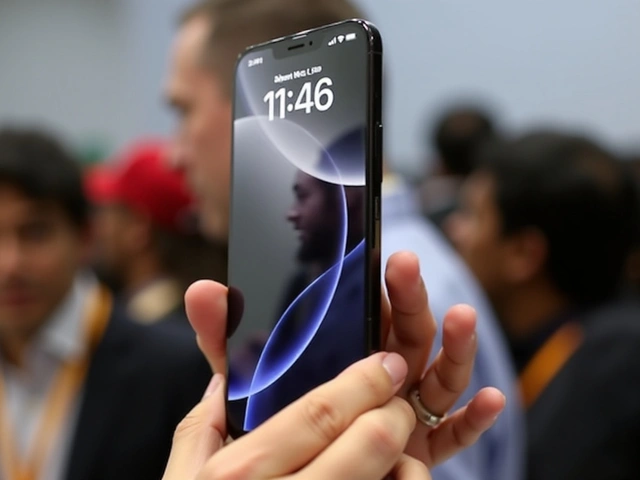
Michelle Roque
October 17, 2024 AT 01:20Wow, this is a wild ride for Kenya's politics.
Killian Lecrut
October 25, 2024 AT 11:26Man, the drama around Gachagua is like a season of a reality show-except the stakes are a whole nation. Everyone’s tossing around accusations like confetti at a parade. You can feel the sarcasm dripping from every press release, but also the genuine worry of citizens. Still, maybe this chaos will force some real reforms, who knows.
Subi Sambi
November 2, 2024 AT 20:32Honestly, the whole impeachment saga is a textbook case of political theater masquerading as accountability. The charges read like a laundry list of every possible scandal you can conjure, yet the narrative is carefully crafted to demonize one individual while shielding the power structure. It's a classic move: rally the base with moral outrage while the elite pull strings behind the curtain. If Kenya truly wants progress, it must look beyond the spectacle and address systemic corruption.
Joshua Rainey
November 11, 2024 AT 06:39Oh great another “impeachment” because someone didn’t like a tweet. the Senate is just a prop and the courts love drama; it’s all a big show for the media lol
Gail Robb
November 19, 2024 AT 16:45One might argue that the impeachment effort is a mirror reflecting the moral decay of a society that trades virtue for power. Yet, it also serves as a crucible in which the true character of a nation is forged. If we truly cherish democracy, we must demand that such processes be free from partisan manipulation. Otherwise, we are merely polishing the veneer of legitimacy while the rot spreads beneath.
Pradeep Chabdal
November 28, 2024 AT 02:51The intricacies of Kenya's constitutional provisions regarding impeachment are often oversimplified in mainstream discourse. It is imperative to recognize that the two‑thirds majority requirement is deliberately stringent to prevent frivolous removals. Nevertheless, the political elite appear eager to interpret any dissent as a pathway to power consolidation. One can only hope that the institutional checks remain robust enough to withstand such pressures.
andy heri
December 6, 2024 AT 12:58Hey folks, I get that the situation looks tense, but remember that Kenya has weathered storms before. The people’s voice matters, and there’s strength in staying informed and supportive of peaceful dialogue. Let’s keep encouraging leaders to act with transparency and respect for the constitution. Together we can hope for a resolution that strengthens our democracy.
Jeremy Perlman
December 14, 2024 AT 23:04Look, the facts are clear: the Senate needs a two‑thirds vote, the court has already allowed the process, and the public is watching. If you ignore any of these points, you’re just ignoring reality, which is frankly irresponsible. So let’s focus on the actual legal framework instead of spinning endless speculation; the numbers don’t lie. Remember, transparency is the cornerstone of any functional democracy.
George Georgakopoulos
December 23, 2024 AT 09:10What if I told you that the impeachment is just a cover for a larger power shift orchestrated by hidden cabals? The timing aligns perfectly with foreign interests looking to destabilize the region. It’s not a coincidence that the Senate sessions are suddenly “open” after months of secrecy. Stay alert; the truth is often buried beneath layers of official rhetoric.
Abirami Nagarajan
December 31, 2024 AT 19:16I think it’s important to stay calm and let the legal process run its course.
shefali pace
January 9, 2025 AT 05:23Wow, what a whirlwind! The energy surrounding this impeachment feels almost cinematic, yet it’s real lives at stake. I truly hope the outcome brings some healing and not just more division. Let’s keep the conversation hopeful and constructive.
sachin p
January 17, 2025 AT 15:29From a cultural perspective, this whole episode highlights how ethnic dynamics continue to influence Kenyan politics. It’s a reminder that national unity requires more than rhetoric; it needs genuine inclusion.
sarthak malik
January 26, 2025 AT 01:35Here’s a quick rundown: the Constitution requires a two‑thirds Senate majority, the court has cleared the way, and public opinion is split. Historically, impeachment cases have either consolidated power or led to reforms, depending on how institutions respond. So keeping an eye on Senate voting patterns will give us early insight into the direction this will take.
Nasrin Saning
February 3, 2025 AT 11:42We all want a stable Kenya, and that means respecting the legal process while also listening to the grassroots concerns. It’s crucial that any decision reflects not just political maneuvering but the genuine needs of the people.
gaganpreet singh
February 11, 2025 AT 21:48It is a profound moral tragedy that a nation with such a vibrant history finds itself trapped in a perpetual cycle of partisan vendettas and self‑serving ambition. The impeachment of Deputy President Gachagua, while ostensibly a pursuit of accountability, is in many ways a symbolic indictment of a political culture that prizes power over principle. Each allegation levied against him-corruption, ethnic incitement, abuse of office-reflects not only the alleged misdeeds of a single individual but also a systemic rot that pervades the highest echelons of statecraft. When a legislature moves to remove a sitting official, it should be a sober exercise of constitutional duty, yet the fervor with which these proceedings have been conducted suggests a theatre of retribution rather than justice. The specter of ethnic division looms large, because the very charge of stoking ethnic animosity taps into historic wounds that have previously erupted into violence. By invoking such a charge, political actors risk inflaming the very tensions they claim to condemn. Moreover, the procedural opacity-closed‑door Senate meetings and hastened votes-undermines public confidence in due process. Transparency is not a mere procedural nicety; it is the lifeblood of democratic legitimacy. The broader populace, already disillusioned by past scandals, is left to wonder whether this impeachment is a genuine corrective measure or a strategic removal of a rival. In the long view, the outcome of this saga will set a precedent for how Kenya handles high‑level misconduct. Will it embolden future leaders to act with restraint and integrity, or will it signal that political survival hinges upon eliminating threats through legal machinations? The answer to this question will reverberate through Kenya’s constitutional fabric for generations.
Urmil Pathak
February 20, 2025 AT 07:54Reading the previous analysis, it strikes me that the emphasis on procedural transparency is crucial. While the moral arguments are compelling, the practical need for open Senate deliberations cannot be overstated.
Neha Godambe
February 28, 2025 AT 18:01Let us be unequivocal: any attempt to weaponize impeachment for personal gain is an affront to democratic values, and it must be condemned in the strongest possible terms. The integrity of our institutions depends on principled action, not partisan expediency.
rupesh kantaria
March 9, 2025 AT 04:07In contemplating the ramifications of this impeachment, one must invoke the ancient maxim that “Power tends to corrupt, and absolute power corrupts absolutely.” The proceedings, therefore, serve as a litmus test for the resilience of constitutional safeguards within the Republic of Kenya. It is incumbent upon scholars and citizens alike to scrutinize each procedural step with academic rigor, lest we succumb to the allure of populist expediency.
Nathan Tuon
March 17, 2025 AT 14:13We’ve seen a lot of turmoil, but let’s keep our focus on constructive outcomes. Encouraging dialogue and mutual respect can help steer Kenya toward a more stable future.